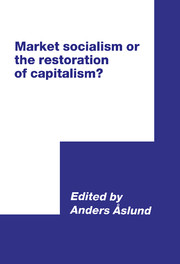Book contents
Introduction
Published online by Cambridge University Press: 04 August 2010
Summary
The ten papers in this volume were originally presented at the Fourth World Congress for Soviet and East European Studies held at Harrogate Spa in England on 21–6 July, 1990, and this publication occurs under the auspices of the International Council for Soviet and East European Studies. The papers have been revised and updated to November 1990.
The autumn of 1989 was the time of the great East European revolutions, and in 1990 the European stage emerged completely transformed. Democracy had made a tremendous advance. For the first time, most of Eastern Europe experienced free and just political elections. A multitude of new parties, mostly with liberal, conservative or national connotations, made their entry into political life.
Economically, however, the year of 1990 will go down as one of the most miserable in terms of economic growth in East Europe, or East Central Europe as part of it is now called. On the one hand, there is a tremendous yearning for well-functioning market economies. On the other, the road to a free economy – to allude to Janos Kornai's recent book – seems paved with thorns as well as good intentions, and surely will not lead to heaven.
Currently, there is a broad conviction that only a restoration – or rather, new emergence – of fully-fledged capitalism can salvage the formerly socialist countries. This view stands in sharp contrast to previously prevailing ideas that market socialism was a real alternative and that the socialist countries would gradually marketize, while developing more social forms of ownership.
- Type
- Chapter
- Information
- Publisher: Cambridge University PressPrint publication year: 1991

